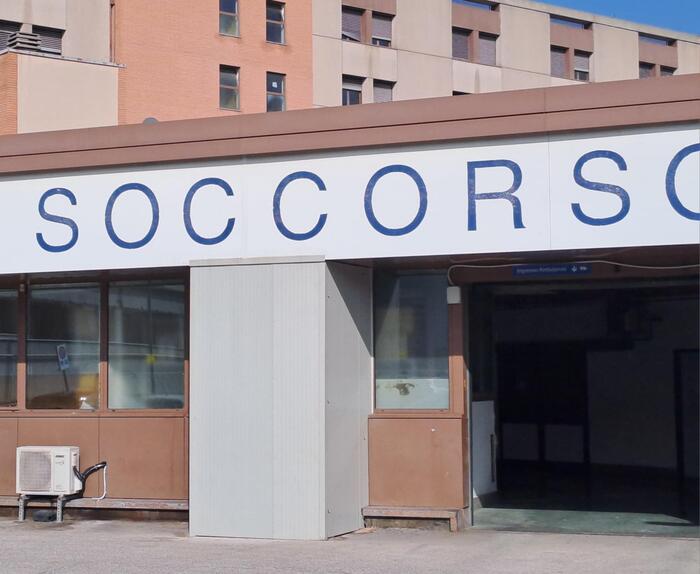“For us, this gesture is serious and painful. Hervé Dombret, head of the blood diseases department at the Parisian Saint-Louis hospital, is one of the 19 heads of department who resigned from their administrative duties on Monday. Before them, 194 other letters of resignation were sent to hospital directors throughout France. And this challenge, started on January 15, is gaining more and more followers.
In all, nearly 1,285 hospital doctors, department heads and unit heads have announced their intention to resign in the absence of an emergency plan for the public hospital. The Inter-Hospital Collective, which unites the movement, believes that the government's hospital plan is "largely insufficient" and calls for the organization of the Estates General.
What does an administrative resignation mean?
"An administrative resignation is more than a symbol: a service cannot function without a manager," says Denis Glotz, head of the nephrology department at the Saint-Louis hospital. Concretely, these doctors will no longer take care of administrative tasks, such as schedule management, relations with non-medical staff and everything related to budget issues.
"We can participate in meetings with management to discuss projects, but as soon as we are told about a business plan, funding, we will leave," explains Sophie Demeret, head of the medical neuroreanimation service at Pitié-Salpêtrière in Paris, who will present his administrative resignation in the coming days. "The clinical, teaching or research functions are not concerned by this approach", specifies the neurologist. No direct consequences, therefore, for the patient.
What do these doctors denounce?
The origin of this anger goes back a little more than ten years, to the Bachelot law of 2009. "The hospital then became a business and the doctors were involved in the search for a balanced budget," says Sophie Demeret. In the viewfinder of resigning department heads: the generalization of activity pricing (T2A), which pays establishments according to the medical activity they carry out.
“We are shown Excel tables with the number of stays made ( note: the hospital stay of a patient ), the medical procedures performed and the number of euros reported for each service. It is an injunction not to lose money and, insidiously, to sort the patients, says the neurologist. It creates sick hot potatoes , those whose illness requires a long hospital stay for example, with services that refer the patient from unit to unit. "
VIDEO. In Paris, 19 resignations of department heads at Saint-Louis hospital
Paramedical personnel are the first affected by this search for savings, which notably involves the abolition of posts. “Before, when we welcomed a new nurse in the service, we trained her for three months. Now, we receive news every day, who are acting and do not know our unit. Inevitably, the quality of care deteriorates, ”deplores the head of the neuroreanimation service. He cites as an example: “We regularly see nurses who have never seen a respirator in their lives. It's serious. "
Newsletter - The essentials of the news
Every morning, the news seen by Le ParisienI'm registering
Your email address is collected by Le Parisien to allow you to receive our news and commercial offers. Find out more
“Patients today stay in the hospital for a minimum of time for a maximum of acts of care. The nurses therefore spend their days running and less really accompanying the patient, "explains Thierry Amouroux, spokesperson for the National Union of Nursing Personnel (SNPI), who deplores" a loss of sense of the profession ". In his nephrology department, Denis Glotz is forced to keep beds closed for lack of nurses. The same goes for the neuroreanimation unit of Sophie Demeret: out of the 30 nursing positions in her department, 15 are vacant. "They left for the liberal, the private, or changed their profession," she explains.
What is the government proposing?
In its plan for the hospital, presented in November by Prime Minister Édouard Philippe and Minister of Health Agnès Buzyn, the government provides 1.5 billion euros in additional funding over three years - including 300 million from 2020 -, the recovery of a third of hospital debt (10 billion euros), premiums and a return of doctors in governance.
"Withdrawing part of the debt is a step in the right direction, recognizes Denis Glotz, but we are waiting for real measures. "" The bonuses will be paid to those who work in one department but not in others, in such services and not in all ... It is restrictive and unacceptable! regrets Thierry Amouroux. The government responds alongside. "
What are doctors asking for?
The doctors who have resigned are demanding the reopening of hospital beds, the reassessment of care systems, the hiring of caregivers, social workers and secretaries, or the revaluation of the salaries of hospital staff. In particular, they are asking for an increase of 300 euros net per month for nurses, their salary being one of the lowest of all the OECD countries. “We want the government to recognize our skills! "Says Thierry Amouroux.
“Savings must be made thanks to the reduction in the costs of managing the health system (almost 16 billion euros), the limitation of the prices of innovative treatments and above all the improvement of the relevance of prescriptions and procedures, including more 20%, according to the minister, would be unjustified, ”explains the Inter-hospital Collective.
Why now ?
This historic showdown comes after almost a year of emergency strike. Hospital department heads have now followed suit. "Their mobilization served as a magnifying glass: it showed everything that did not go ahead of emergencies", notes Sophie Demeret, who adds: "The social context is no accident, the same causes produce the same effects. It cracks everywhere. "
"We are coming to the end of a forced weight loss program of ten years", asserts Denis Glotz. For him, who has worked for forty years at the Public Assistance-Hospitals of Paris, the point of no return has been reached. “We cannot treat people in a degraded way. "Certainly, the government inherited a previous situation, but we are coming at a key moment," said her colleague from La Pitié-Salpêtrière. We do not want to witness the sinking of the hospital. "















/cloudfront-eu-central-1.images.arcpublishing.com/prisa/IGZ7GOCXZ5GUPAQ2HWGK6Z76BU.jpg)